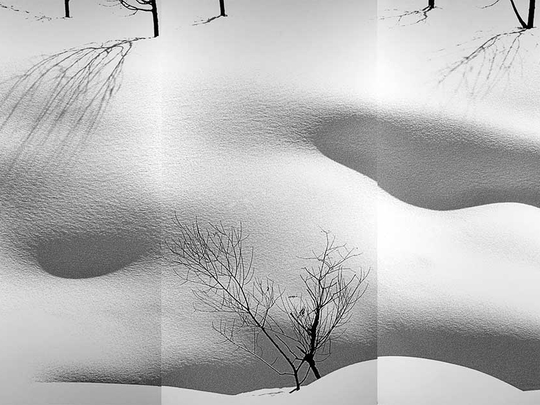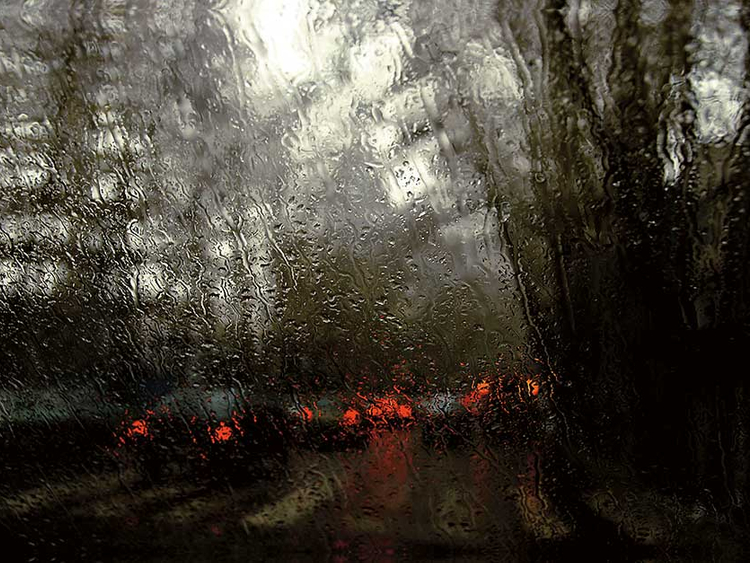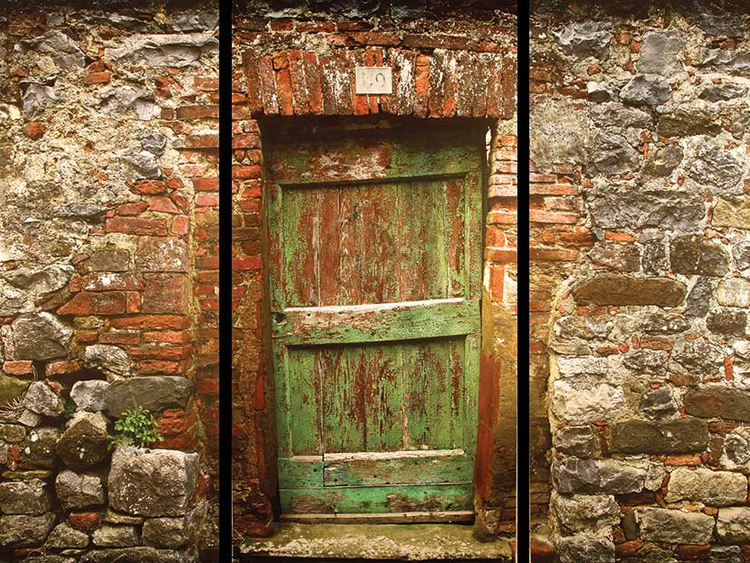
The Farjam Foundation is celebrating the life and work of renowned Iranian painter, poet, photographer and filmmaker, Abbas Kiarostami, who died in Paris on July 4 last year, with an exhibition of his photographs, titled The Everlasting Roots. The show features a selection of images from all his photographic series.
The Farjam Collection is one of the largest private art collections in the world featuring Islamic and pre-Islamic, contemporary Middle Eastern, and modern and contemporary art. The photographs in the show are all drawn from the collection, and many are being exhibited for the first time.
Kiarostami was born in Tehran in 1940 and graduated from the University of Teheran School of Fine Arts. He began his artistic journey as a graphic designer and illustrator, and began making films after joining the Centre for Intellectual Development of Children and Young Adults. He won the Palme d’Or for his film, Taste of Cherry at the 1997 Cannes Film Festival, and was recognised worldwide as a leading contemporary filmmaker.
As a photographer, Kiarostami began by using his camera to document possible film locations. He was a self-taught photographer, but his work reflects his mastery of the medium, and conveys his unique perspective on nature and the human condition. During the last two decades of his life, photography became an important part of his creative expression, and his work was exhibited at prestigious venues such as the Victoria & Albert Museum in London, the Louvre and the Pompidou in Paris, and the Museum of Modern Art in New York.
Speaking about photography, Kiarostami said, “What I love about photography is the inscription of a single moment. It is completely ephemeral — you take the photograph and one second later everything has changed.”
Kiarostami’s large, mostly black and white photographs focus mainly on spaces, places and landscapes, especially the Iranian countryside. The lyrical images capture the beauty and tranquility of nature, and through it the essence of human existence.
The earliest photographs in the show are from his Snow White series, shot between 1978 and 2003 along Iran’s Caspian coast during his walks in search of filming locations. The spontaneous images reflect his feelings of awe and wonder at the beauty of the snow-covered winter landscapes. They are also deeply philosophical, with the leafless trees standing defiantly amidst the snow, symbolising the resilience and permanence of nature as opposed to the fragility and ephemeral quality of human concerns and conflicts, and of life itself.
Kiarostami saw trees as a symbol of life and a metaphor for people. He often compared himself to a tree, saying that his roots were so deeply planted in his homeland, that he would not be able to create (bear fruit) if he moved abroad. His series, Trees & Crows features images of aged trees whose scarred but sturdy trunks signify strength, endurance and stillness. The beautiful play of light and shadow adds depth and gravitas to the images, while the presence of birds around the trees highlights the harmony that exists between opposing elements in nature.
Another of his favourite subjects — both as a filmmaker and photographer — was ‘roads’. He saw a road as a space where people of all strata come together on journeys filled with various possibilities, and each one walks on their own path, which is sometimes straight and simple, sometimes curved with no end in sight, and sometimes leading nowhere. When the artist reviewed his work, he realised that he had a collection of over a thousand images of roads. Images from his Roads series in the show include pictures of winding mountain roads, narrow pathways cutting across fields, sometimes with a shepherd walking down with his flock of sheep, lonely tracks in the snow, and city roads with cars and pedestrians.
The artist’s well-known series, Doors Without Keys was shot over two decades in various countries, including Italy, France, Spain, Morocco and Iran. It features aged, weathered doors with every detail of the marks left by time on the wooden doors and crumbling walls around them in sharp focus. The doors tell stories about the lives of the people who passed through them, and lived behind them. Kiarostami made the pictures life size, inviting viewers to enter the doors and go as far as their imaginations can take them.
Similarly, in his Windows series, the artist encouraged viewers to go beyond what he had shown, and imagine what lay outside the windows. Once again, he played with light and shadow merging the dark interior with the well-lit exterior, in a metaphoric representation of our inner and outer worlds, and of the photographic process itself.
Works from his acclaimed Wind and Rain series complete this survey of Kiarostami’s journey as a photographer. The artist shot these images through the windscreen of his car on rainy days, often while stuck in Teheran’s notorious traffic jams. The profound images are like abstract paintings composed of streams of water and subtle splashes of colour created by the reflection of the city lights on the raindrops.
“It is an enormous privilege for us to present the works of a true master of his art. This exhibition offers a small glimpse into Kiarostami’s vast array of work, and is a modest tribute to a friend who, like his art was much larger than life. The riveting images displayed here reveal an artist who speaks to the singular passion and sentiment for nature’s beauty and the theme of enlightenment, that are both emphasised literally and figuratively in a mystical manner. It is an honour that The Farjam Collection’s breadth is able to pay tribute to Kiarostami’s eternal flame, as his spirit exceeds its vessel, flowing out through his works, continuing to inspire the world,” Farhad Farjam, founder of The Farjam Collection says.
Jyoti Kalsi is an arts-enthusiast based in Dubai.
The Everlasting Roots: A Selection of Photographs by Abbas Kiarostami will run at The Farjam Foundation, DIFC until July 13.














